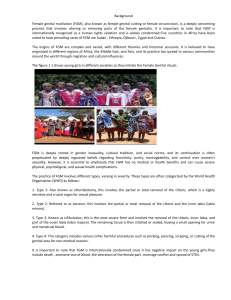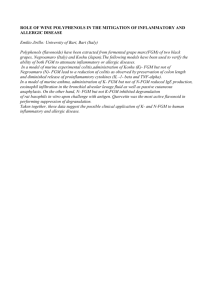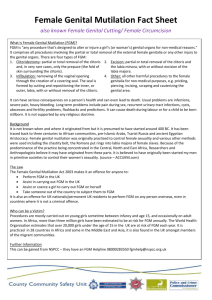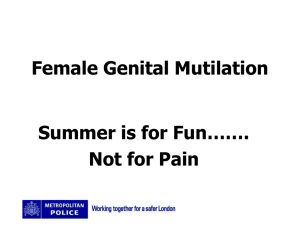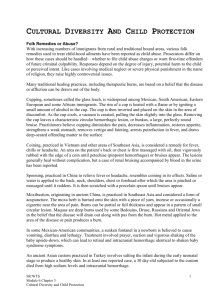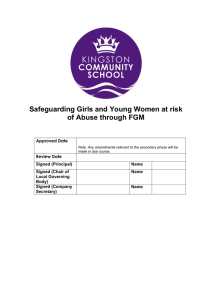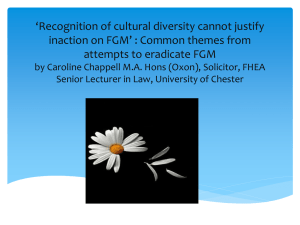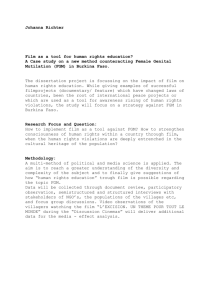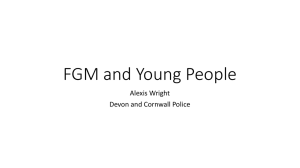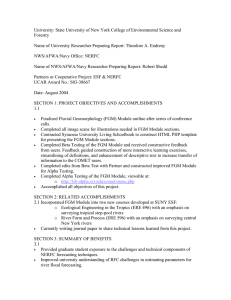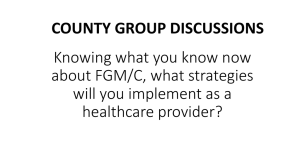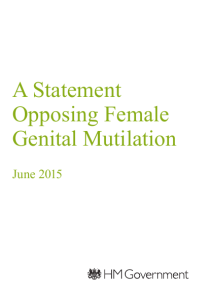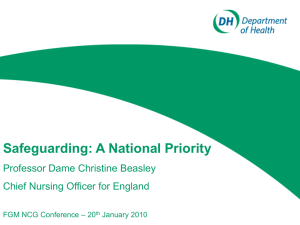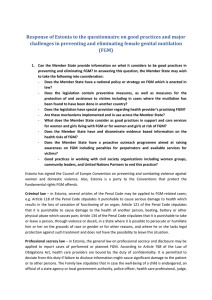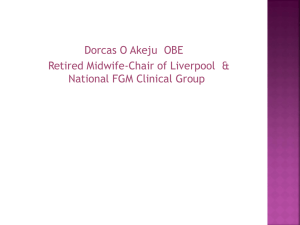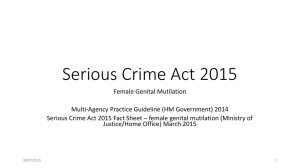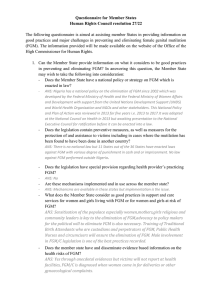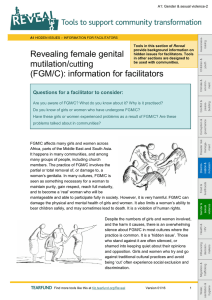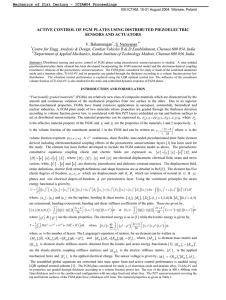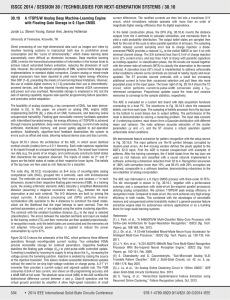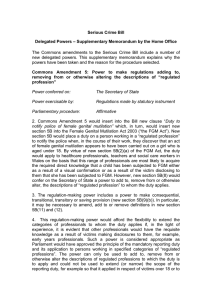Children and Families and FGM
advertisement
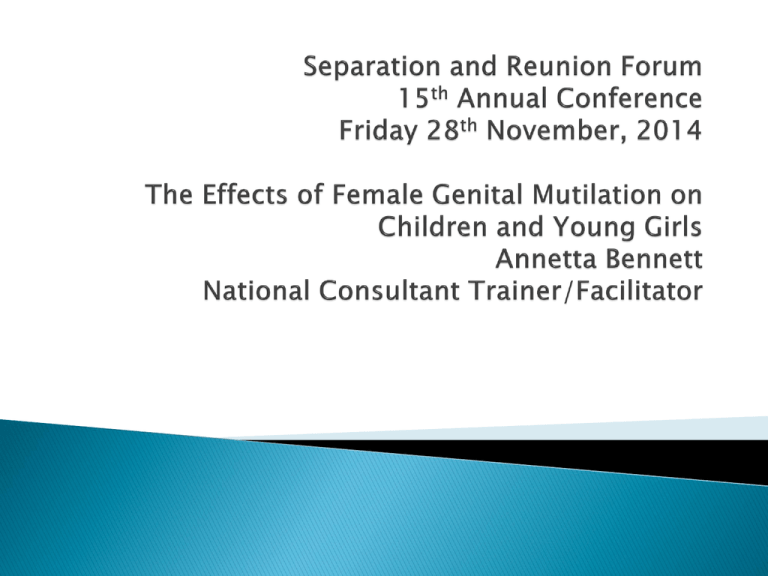
All procedures which involve the partial or total removal of the external genitalia or injury to the female genital organs whether for cultural or an other non-therapeutic reasons. The World Health Organisation “You cannot change a culture but you can educate young people and make sure they do not carry on the tradition.” Offence to commit FGM. Offence to aid, abet, counsel or procure a girl to commit FGM outside of UK that is carried out by a person who is not a UK national or resident. Any act done outside UK by UK National or resident. Type 1 Excision (removal) of the clitoral hood with or without removal of part or all of the clitoris. Type 2 Removal of the clitoris together with part or all of the labia minora. Type 3 (infibulation) Removal of part or all of the external genitalia (clitoris, labia minora, and labia majora) and stitiching and or narrowing of the vaginal opening leaving a small hole for urine and menstrual flow. Type 4 (unclassified) All other operations on the female genitalia, including: Pricking, piercing, stretching, or incision of the clitoris and/or labia; Cauterisation by burning the clitoris and surrounding tissues; Incisions to the viginal wall; Scraping (angurya cuts) or cutting (gishiri cuts) of the vagina and surrounding tissues; Introduction of corrosive substances or herbs into the vagina. T The child will be at risk of/experienced significant harm. All definitions of abuse applicable – Physical injury, neglect, emotional, sexual abuse (bullying, exploitation, domestic abuse.) The physical and emotional impact of FGM will transcend into adulthood. Female genital mutilation is a form of abuse. 2 million girls around the world every year are mutilated. Mainly African and Middle Eastern countries, the immigrant population of Europe, America and Australia. It is estimated that as many as 20,000 UK girls are at risk of FGM. Any girl is at risk but usual age range between 4-14. Babies on the increase. The family come from a community that is known to practise FGM. Parents state they will take the child out of the country for a prolonged period. A child may talk about a long holiday to a country where the practice is pevalent. A child may disclose that she is to have a “special procedure”, rites of passage or a celebration. A child may spend long periods of time away from the classroom during the day with bladder or menstrual problems. Prolonged absences from school coupled with a noticeable change in behaviour. The child has requested to abstain from physical exercise with no statement or support from their GP. A child may be isolated, not interact with the peers, sad, low in mood due to pain and fear of disclosure. Need to develop[ cultural competency and a willingness to increase understanding and respect for culturally-based values, beliefs and behaviours. Cultural sensitivity. Reach out to diverse communities. Promote equality of opportunity recognising individual need for fairness and equal concern. Assist communities in recognising when culture becomes harm. You must inform your designated person/child protection lead; They must make a referral to the Local Authority Children’s Safeguarding Children’s Board. (LSCB) NSPCC FGM Helpline 0800 028 3550 (Free) 24hr anonymous FGM helpline nspcc.org.uk/fgm Site: Guy’s & St. Thomas’s Hospital. Specialist FGM Midwife – Comfort Momoh. More than 1,100 patients seen in last five years. Raising awareness amongst the public, local communities, health professionals, pupils and teachers. GP awareness courses. NSPCC FORWARD AFRUCA GIRL CHILD NETWORK CASSANDRA LEARNING CENTRE VICTORIA CLIMBIE FOUNDATION Remember: ONE HAND CAN’T CLAP The safeguarding and protection of our girls cannot be accomplished by any one individual or organisation . We have a collective duty and responsibility. bennettannetta@ymail.com
